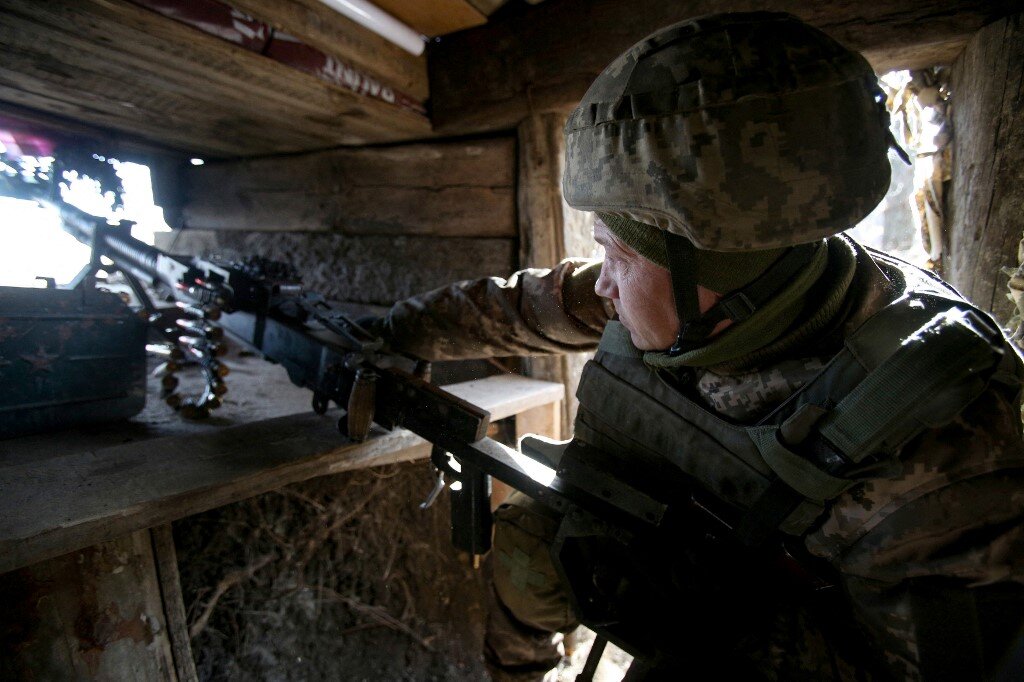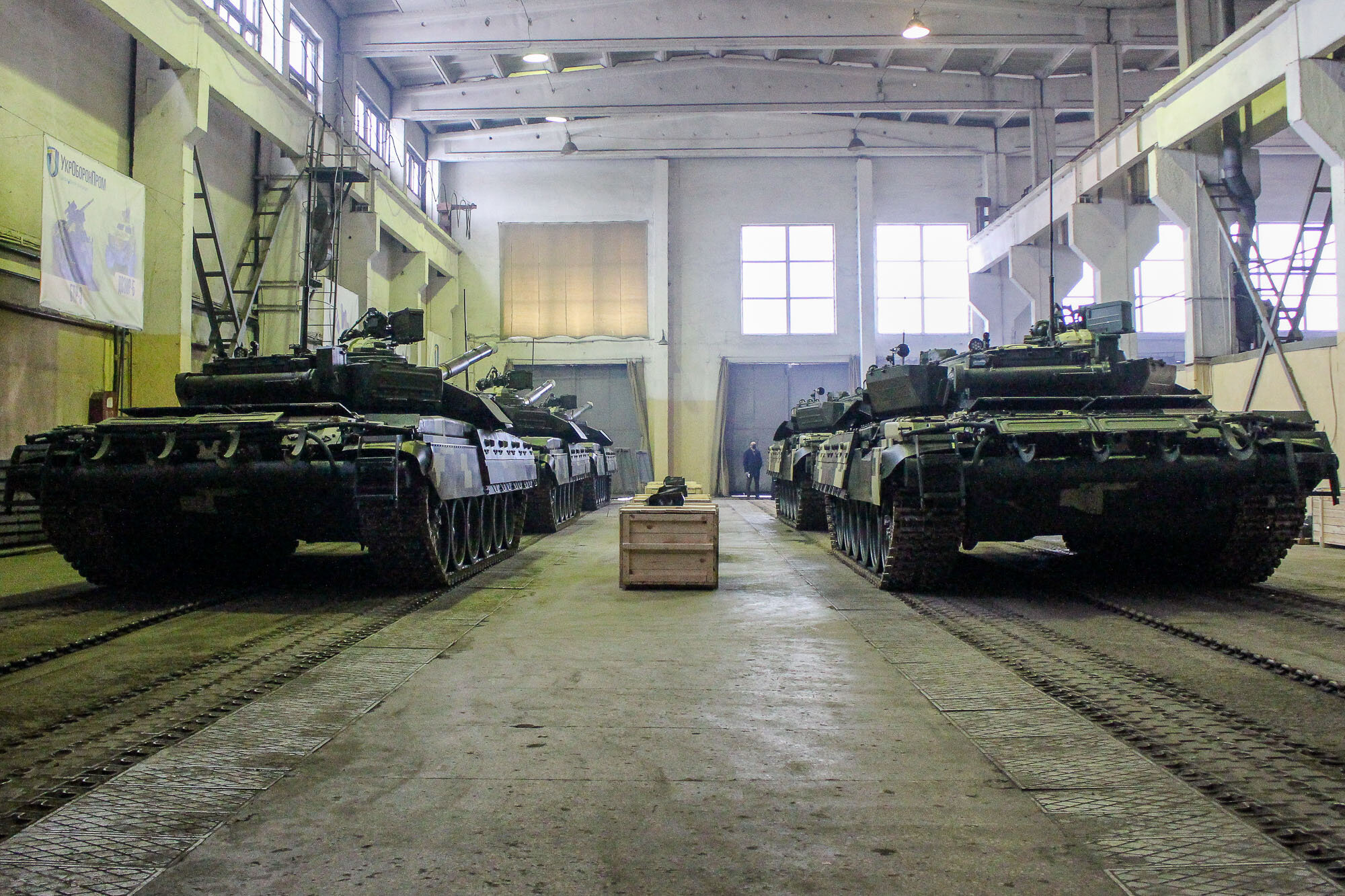No one in Ukraine expected the reform of defense procurement — the source of decades-long multibillion-dollar corruption — to be quick and easy.
But government officials seem to be doing their best to make it as hard as possible.
A groundbreaking law introducing a new transparent and competitive procurement of goods and services for the armed forces and other uniformed services was signed into force in August.
Yet, it is not working. The ministries of defense and strategic industries have missed every deadline to adopt the many bylaws the new system needs.
Now the whole industry stands on the brink of chaos. The old, Soviet-style model of defense procurement must be eliminated by March 31. The new system is not even close to ready.
The government is rushing to pass bylaws bit by bit to try and save the day. Meanwhile, the expert community is sounding the alarm, saying that many of these regulations at best still carry corruption risks or at worst contradict the reform’s very idea.
The mayhem in government offices risks paralyzing the country’s military procurement, amid the ongoing proxy war with Russia.
Many fear that Ukraine’s defense sector might not even see transparent and corruption-proof tenders until at least 2022.
Comfortably opaque
The long-awaited bill strongly advocated by pro-reform experts and Western advisers encompassed scores of steps to eliminate apocalyptic corruption in the industry.
Large businesses close to or owned by top officials usually get the first pick of the juiciest defense contracts.
For example, in 2015–2019, then-President Petro Poroshenko and his long-time business partner and National Security and Defense Council secretary Oleh Hladkovsky were among the top non-government contractors for the military.
Poroshenko’s shipyard in Kyiv produced gunboats for the navy, and Hladkovsky’s Bohdan Motors used to reassemble Chinese trucks as medical vehicles for the army.
Loose and convenient regulations allowed officials to classify any procurement deal and choose contractors and prices at their own discretion with no competitive tenders.
This often led to unfettered corruption, wrapped in insincere excuses. A common tongue-in-cheek example is the strict secrecy surrounding the procurement of boots for soldiers, supposedly to avoid giving away unit strength.
According to Hlib Kanievskyi, head of Kyiv-based anti-graft watchdog StateWatch, the total value of procured goods and services for the military, police, National Guard, State Border Service, and other security agencies amounts to at least Hr 40 billion ($1.44 billion) a year.
Defense acquisition is considered among the worst corruption hotspots in Ukraine. In its review, global anti-graft organization Transparency International estimated corruption risks in the country’s sector as “high.”
Transparency International gave Ukraine 50 points out of 100 for defense purchase transparency; 42 points for oversight; and 63 for its defense anti-corruption legislation.

A Ukrainian soldier stands guard at a combat post in the war zone of Donbas on Feb. 19, 2021. (AFP)
All deadlines missed
The new bill was supposed to introduce a civilized procurement model.
“It launches tenders held in full parity for state-run and private companies,” Kanievskyi said.
“It broadens competition and introduces a reasonable model of secrecy, under which only certain very unique hardware can be procured under classified direct contracts. But at the same time, the community will be able to execute democratic control of other contracts signed via open competitive tenders.”
The bill provides for the creation of a defense contractor registry. This is meant to stop officials from using short-lived sham companies to sell equipment stolen or decommissioned from military warehouses back to the Ministry of Defense at inflated prices.
“The registry will show all companies involved in defense procurement so that anyone could check what’s going on,” Kanievskyi said.
According to former Defense Minister Andriy Zagorodnyuk, the bill’s implementation was among the crucial requirements for American military assistance in 2020, as well as of Ukraine’s further rapprochement with NATO.
The ministries of defense and strategic industries were supposed to develop some 20 bylaws synchronizing defense procurement with the new legislation. President Volodymyr Zelensky in August ordered the government to complete the process by mid-February, as required by the bill.
The bylaws were expected to be completed by the end of 2020 so that the new system could be launched by the start of the fiscal year 2021.
But the bylaws’ first drafts were only sent in for review in mid-December to the despair of watchdogs.
Facing a torrent of criticism, Minister for Strategic Industries Oleh Uruskiy in his late December interview with the Kyiv Post vowed to get all the job done by mid-February.
But the bill is still not working.
Corruption risks
The defense and strategic industries ministries point out that the bylaws are being submitted and approved little by little, and that the new procurement system will be completed.
On March 3, Uruskiy reported passing two more bylaws. Strategic Industries Ministry spokesman Anton Mikhnenko said that eight out of ten documents required from the Ministry of Strategic Industries have been reviewed and adopted by the government.
The Defense Ministry told Radio Free Europe/Radio Liberty that the Defense Ministry has also submitted all six of its bylaws for review.
Mikhnenko did not respond to Kyiv Post’s questions about why his ministry was taking so long.
Even though the government keeps passing new regulations, new problems keep cropping up.
On Feb. 11, the National Agency on Corruption Prevention said that bylaws approved by the Cabinet of Ministers have high corruption risks and loopholes, allowing officials to confer advantages to select companies in open tenders.

Five recently repaired T-72 main battle tanks ready to be sent back to their home units, pictured parked in a workshop at the Kyiv Armored Vehicles Plant in Kyiv on Feb. 24, 2021. (Illia Ponomarenko/Kyiv Post)
In an open letter published Feb. 24, nine of the biggest anti-graft nonprofits issued a joint statement accusing the government of trying to derail the reform.
“The draft acts developed by the Cabinet of Ministers partially contradict the bill and preserve the status quo,” the experts said. “Excessive secrecy, lack of competition and manufacturers’ transparent access, no market pricing, no transparent and progressive model for the assessment of profits of monopolistic enterprises.”
The bylaws threaten the reform with complete failure, according to the letter.
According to Arthur Pereverziev, a Defense Ministry reform advisor in 2015–2020, the most basic problem behind the defense procurement bylaws is not that they are behind schedule, but the very reason the deadlines were missed.
“(It’s because of) the lack of specialists able to write correctly and qualitatively and the surplus of those who write incorrectly, aiming to change nothing,” the expert said. “From a distance, it is hard to see if this is a deliberate policy to derail the reform in favor of status quo or simply incompetent management of the country’s strategic industries.”
Meanwhile, as the transition deadline is drawing near, the defense procurement sector is facing critical uncertainty in light of the upcoming legislative void.
Many officials are confused about how to interact with defense contractors because “any time, law enforcement can come in and charge them with misuse of authority in the distribution of state budget money,” Kanievskyi said.
As analysts note, while the government procrastinates with bylaws, the military needs an uninterrupted supply chain and can’t wait for anyone.
Now that all the deadlines have been missed, the Cabinet of Ministers is rushing to pass the bylaws as quickly as possible, just to pull its reputation out of a death dive.
“This means that we will likely not get a new defense procurement system working in 2021,” Kanievskyi said.
“The government will sooner or later admit that numerous amendments need to be worked out, just to whip the regulation into shape — as it often happens.”
